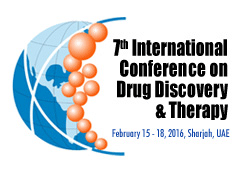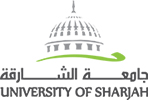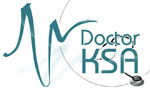



Dear Colleagues,
As the previous conferences held in Dubai in February 2008, 2010, 2011, 2012, 2013 and 2014, which were attended by many Nobel Laureates, and 1500 eminent scientists,the 7th ICDDT is also augured to be a mega event with over 300 lectures over 43 thematic sessions, poster presentations and an associated exhibition planned. The conference will host leading scientists from academia and industry worldwide, to discuss the latest developments in drug discovery and therapy.
The major topics of discussion related to drug, discovery and therapy will include: Pharmaceutical Research & Development, Translational Medicine, Regenerative Medicine, Enabling Technologies, Structural Biology, Drug Delivery & Targeting, Antiinfectives, Biologics, CNS Drug Discovery & Therapy, Diabetes and Obesity Drug Discovery & Therapy, Women's Health Drug Discovery & Therapy, Drug Discovery in Preclinical Research, Cardiovascular Drug Discovery & Therapy, Oncology, Process Chemistry and Drug Manufacturing, Pulmonary Drug Discovery & Therapy, Recent Advances in Patient Treatment and Care, Inflammation and Immunology, Innovative Drug Discovery and Nanotechnology, Pharmaceutical Biotechnology, Proteomics & Bioinformatics, Pharmacogenomics, Protein and Peptide Sciences, Drug Metabolism, Hot Topics in Medicinal Chemistry, Medical Imaging, Hot Topics in HIV Research, In-silico Drug Design and in-silico screening, Combinatorial Chemistry, High-throughput Screening & Laboratory automation, Hot Topics in Drug Targets, Hot Topics in Natural Products, Stereoselective Synthesis of Bioactive Compounds, Recent Advances in Spectroscopy, Academic CRO/Industrial collaborations in drug discovery.
The conference aims to provide many interesting perspectives on how science and technology of drug discovery and drug therapy are changing rapidly, thereby providing new opportunities and challenges to the scientists and medical doctors.
I look forward to welcoming the participants to this exciting conference which will bring together world leaders in their respective fields in the fascinating environment of Sharjah and Dubai. The city has become a great tourist attraction because of the range of facilities that it offers to the visitors, warm clean beaches, traditional bazaars and modern shopping centers which are a shopper's paradise, culinary delights from the East and the West, and top class hotels which can provide you with very comfortable accommodation at reasonable rates.

Prof. Atta-ur-Rahman is a Fellow of Royal Society (London), and Honorary Life Fellow of Kings College Cambridge University. He is the author/editor of 105 books published by major US/European presses and has 874 research publications, 59 chapters in books and 15 patents to his credit. He is the Editor-in-Chief of a number of European Chemistry journals including Current Medicinal Chemistry, Current Organic Chemistry, Mini-Reviews in Medicinal Chemistry, Letters in Organic Chemistry, Studies in Natural Products etc.
Prof. Atta-ur-Rahman has been awarded Doctor of Science degrees by a number of universities including Cambridge University and UNESCO Science Prize (1999) as well as the highest civil awards of the Government of Pakistan and Austria for his contributions to medicinal chemistry and education.

Nobel Laureate Ferid Murad, M.D. is Director Emeritus of the Brown Foundation Institute of Molecular Medicine for the prevention of Human Diseases, Director of the IMM Center for Cell Signaling, Regental Professor and John S. Dunn Sr. Distinguished Chair in Physiology and Medicine, Texas Nobel Scholar at the University of Texas at Houston, and Director of the UT Health Science Center at Houston Program in Intracellular Signaling.
Dr. Murad completed his undergraduate work at DePauw University and received his M.D. and Ph.D. from Case Western Reserve University. He had a medical residency at Massachusetts General Hospital and a fellowship at NIH in the Heart Institute. He was on the faculty at the University of Virginia 1970-81 as Director of the Clinical Research Center and Director of the Division of Clinical Pharmacology with appointments in Medicine and Pharmacology. He was the Chief of Medicine at Palo Alto Veterans Hospital 1981-88, Associate Chairman of Medicine 1982-86 and Chairman of Medicine 1986-88 at Stanford University. He was the Vice President of Research and Development at Abbott Laboratories 1988-93 and Professor at Northwestern University.
Dr. Murad has been active in both academic medicine and industry throughout his distinguished career. He has founded or co-founded five biotechnology companies and has advised many cities and government leaders about technology development. His work has concentrated on the field of cell signaling and signal transduction systems.
In 1998, Dr. Murad received the Nobel Prize in Medicine for his work with nitric oxide - a colorless, odorless gas that signals blood vessels to relax and widen, which in turns lower blood pressure. He continues research which leads to a better understanding of how information is transmitted between cells.
Among his many other awards and honors, Dr. Murad received the prestigious Albert and Mary Lasker Basic Medical Research Award in 1996, the American Heart Association Ciba Award in 1988, and the Baxter Award for Distinguished Research in the Biomedical Sciences from the Association of American Medical Colleges in 2000. He also received the American Society of Clinical Pharmacology Distinguished Research Prize in 2005 and the President's Scholar Award from the University of Texas-Houston Health Science Center in 2006.
He is a member of the National Academy of Sciences, a member of the Institute of Medicine of the National Academy of Sciences, Fellow of the American Academy of Arts and Sciences, member of Texas Academy of Medicine, Engineering and Science Technology. He is also a member of several foreign academies and is an Honorary or Adjunct Professor at a number of universities. Dr. Murad also serves on the Board of Directors or Scientific Advisory Boards of a number of public and private companies and various foundations and universities. About 140 trainees have worked in his laboratories who are currently academic or pharmaceutical industry leaders around the world.





















